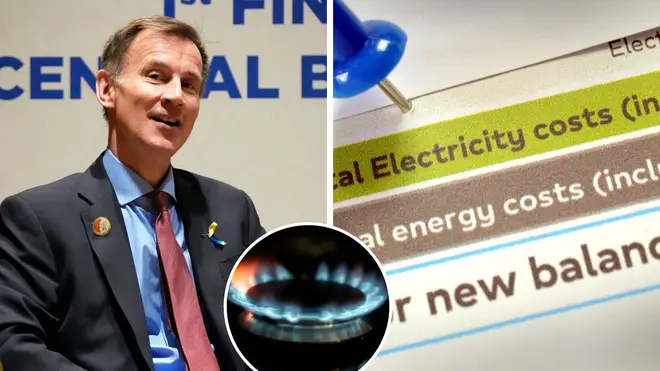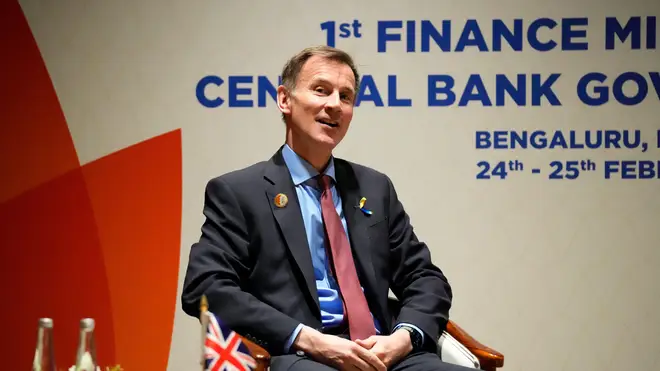
Ben Kentish 10pm - 1am
3 March 2023, 13:59

Help with soaring energy bills will continue at the same level for an extra three months.
The energy price guarantee, designed to keep down higher costs, was due to keep the average household's bill down to £3,000 a year – up from the current £2,500.
But it is understood the level will remain at £2,500. The Treasury is yet to confirm that.
Customers who have been paid the winter discount – worth £400 – will see that come to an end from April 1.
But eight million households on means-tested benefits are in line for cost of living payments worth £900 from April, while pensioners will get £300.
Energy prices could fall enough in the summer that there is no need to keep the subsidy in place, with the Government hopeful the average bill without the guarantee in place will fall below £2,500.
Read more: Covid rule breaches would have been 'obvious' to Boris Johnson at several gatherings, top MPs say

Energy businesses have been told to prepare for two scenarios – one where help remains at £2,500, as is now expected, and one where it rises to £3,000.
The price guarantee caps the amount households pay per unit of energy used and £2,500 is not the absolute maximum customers could pay a year.
It was feared that one in five people would have been unable to pay their bills if the cap had risen, compared to one in ten under the existing level. The typical bill for a household would have been £4,279 a year without help.
Read more: 'Better than 50-50 chance energy bills won't rise in April', Martin Lewis says
There was speculation over whether Chancellor Jeremy Hunt would review the level of state help for bills, given his mission to fix the nation's finances after the disastrous Liz Truss days in No10.
But Paul Johnson, the director of the Institute for Fiscal Studies, said the Government could afford to help with bills because borrowing is set to be lower than previously thought this year.
"Because it's relatively cheap and politically popular, I wouldn't be surprised if something like that happened," he said.